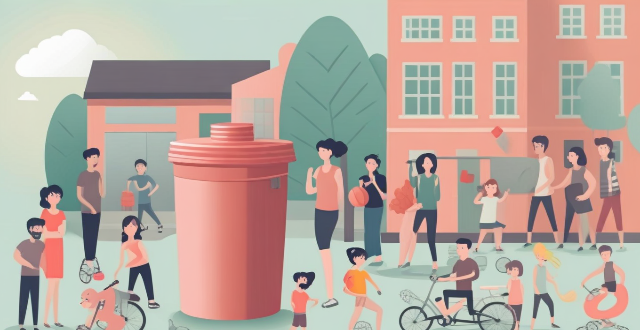Promoting sports activities can contribute to reducing urban poverty by improving health, providing educational opportunities, promoting social cohesion, and creating economic opportunities. However, it is important to recognize that sports activities alone cannot solve all aspects of urban poverty and should be part of a broader strategy to address this complex issue.

Can the Promotion of Sports Activities Help in Reducing Urban Poverty?
Introduction
Urban poverty is a complex issue that affects millions of people around the world. It is characterized by a lack of access to basic services, poor housing conditions, and limited job opportunities. In recent years, there has been a growing interest in the potential of sports activities to contribute to the reduction of urban poverty. This article will explore whether promoting sports activities can help in reducing urban poverty.
The Benefits of Sports Activities for Urban Poverty Reduction
Health and Well-being
One of the most significant benefits of sports activities is their positive impact on health and well-being. Engaging in physical activity can improve mental and physical health, reduce stress levels, and increase self-esteem. For those living in poverty, these benefits can be particularly valuable, as they often have limited access to healthcare services and face higher rates of chronic diseases.
Education and Empowerment
Sports activities can also provide educational opportunities and empower individuals to take control of their lives. Through participation in sports programs, young people can develop important life skills such as teamwork, leadership, and problem-solving. These skills can be transferred to other areas of life, including education and employment, which are critical for breaking the cycle of poverty.
Social Cohesion and Community Building
Sports activities can promote social cohesion and community building by bringing people together from diverse backgrounds. This can help to break down barriers between different groups within a community and foster a sense of belonging and shared identity. For those living in poverty, this can be particularly important, as they may feel isolated or marginalized from mainstream society.
Economic Opportunities
Finally, sports activities can create economic opportunities for those living in poverty. Sports events and facilities can attract tourists and generate revenue for local businesses. Additionally, successful athletes from impoverished backgrounds can become role models and inspire others to pursue careers in sports-related industries, such as coaching or sports management.
Challenges and Limitations
While promoting sports activities has the potential to contribute to the reduction of urban poverty, there are also challenges and limitations that must be considered. For example, resources may be limited, and it may be difficult to reach all members of a community, particularly those who are most marginalized. Additionally, sports activities alone cannot solve all aspects of urban poverty; they should be part of a comprehensive approach that addresses issues such as education, healthcare, and employment.
Conclusion
In conclusion, promoting sports activities can help in reducing urban poverty by improving health and well-being, providing educational opportunities and empowerment, promoting social cohesion and community building, and creating economic opportunities. However, it is important to recognize that sports activities alone cannot solve all aspects of urban poverty and should be part of a broader strategy to address this complex issue.